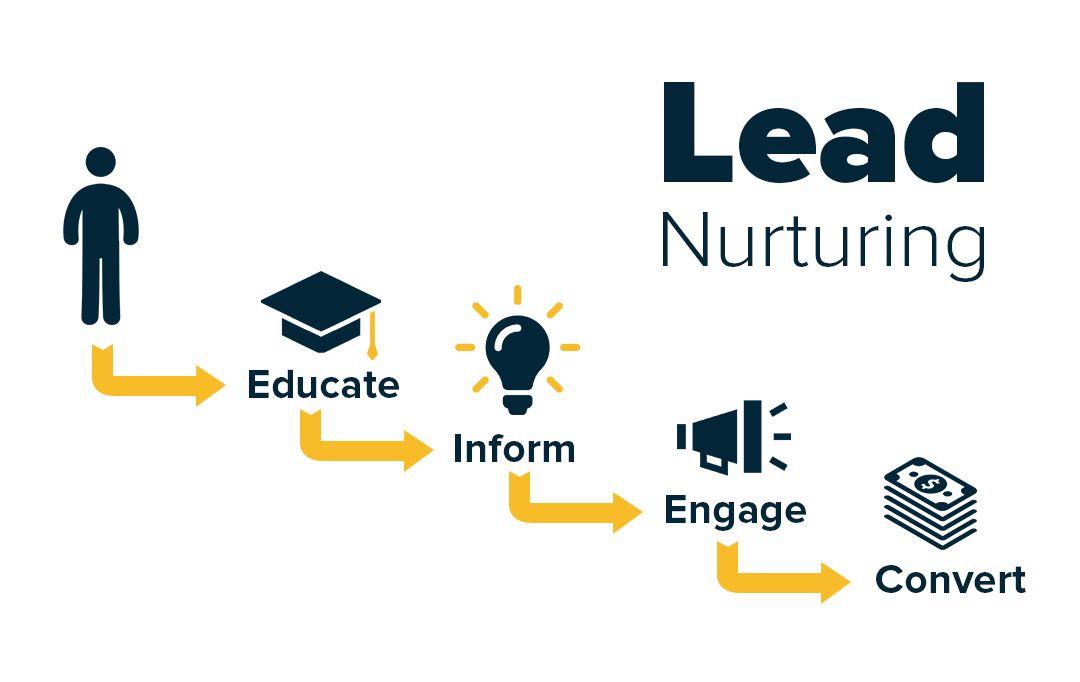In the modern business landscape, lead nurturing has become an essential aspect of the sales process. With consumers having access to vast amounts of information, businesses need to establish long-term relationships with potential customers by providing them with valuable information and personalized experiences. Lead nurturing is the process of building these relationships with potential customers at every stage of the sales funnel, from initial awareness to post-purchase engagement. Lead nurturing is essential because it increases the likelihood of converting a potential customer into a paying customer. By providing valuable information that helps potential customers make informed decisions, businesses can establish themselves as trusted advisors in their industry. This approach builds trust and credibility, which are essential for converting potential customers into loyal customers.
In 2023, there are several effective strategies that businesses can use to nurture their leads. These include personalization, a multi-channel approach, lead scoring, drip campaigns, social media engagement, retargeting, and lead qualification. Each of these strategies involves engaging with potential customers in a way that is tailored to their needs and preferences.
Personalization, for instance, involves customizing the content and messaging that potential customers receive based on their interests, behavior, and demographics. This approach makes potential customers feel valued and understood, which increases the likelihood of conversion. A multi-channel approach, on the other hand, involves engaging potential customers across various platforms and channels, such as email, social media, and live chat. This approach ensures that potential customers receive consistent messaging and can engage with businesses on their preferred channels.
Table of Contents
What is Lead Nurturing?

Lead nurturing is the process of engaging potential customers and building relationships with them at every stage of the sales funnel. It involves providing valuable information that helps them make informed decisions about your product or service. Lead nurturing is essential because it increases the chances of converting a potential customer into a paying customer.
Lead nurturing involves understanding your leads’ needs, interests, and pain points. You need to provide them with valuable content that addresses their concerns and helps them solve their problems. Lead nurturing is not about pushing your product or service onto your leads but about creating a personalized experience that builds trust and establishes your brand as a thought leader in your industry.
Why is Lead Nurturing Important?
Lead nurturing is important for several reasons. Firstly, it helps you build relationships with potential customers, which increases the chances of converting them into paying customers. Secondly, it allows you to provide valuable information that helps your leads make informed decisions. Thirdly, it enables you to establish your brand as a thought leader in your industry. Finally, it helps you differentiate your brand from your competitors and stand out in a crowded marketplace.
The 7 Best Lead Nurturing Techniques for 2023
Personalization
Personalization is the key to successful lead nurturing. You need to understand your leads’ needs, interests, and pain points and provide them with content that is tailored to their specific requirements. Personalization can be achieved by segmenting your leads based on their behavior, interests, and demographics. You can then create targeted content that addresses their concerns and helps them solve their problems.
Personalization can also be achieved by using dynamic content. Content that alters in response to human behavior or preferences is referred to as dynamic content. For example, you can use dynamic content to show different images or text based on the user’s location or previous interactions with your brand.
Multi-Channel Approach
A multi-channel approach to lead nurturing is essential in 2023. Your leads are likely to interact with your brand through various channels, including email, social media, and your website. You need to provide a consistent experience across all these channels and ensure that your message is coherent and relevant.
A multi-channel approach also enables you to reach your leads through their preferred channel. For example, some leads may prefer to receive information via email, while others may prefer to interact with your brand through social media.
Lead Scoring
Lead scoring is the process of assigning a score to your leads based on their behavior and engagement with your brand. Lead scoring enables you to prioritize your leads and focus your efforts on those who are most likely to convert into paying customers.
Lead scoring can be based on various factors, including demographics, behavior, and engagement. For example, you can assign a higher score to leads who have visited your pricing page or downloaded a whitepaper from your website.
Drip Campaigns
Drip campaigns are a series of automated emails that are sent to your leads over a period of time. Drip campaigns enable you to provide consistent communication to your leads and keep them engaged with your brand.
Drip campaigns can be used to provide valuable content, such as blog posts, whitepapers, and case studies. They can also be used to promote your product or service and encourage leads to take action.
Social Media Engagement
Social media engagement is an essential part of a multi-channel approach to lead nurturing. Social media platforms, such as Twitter, LinkedIn, and Facebook, provide an opportunity to engage with your leads and provide them with valuable information.
Social media engagement can take various forms, including sharing blog posts, answering questions, and participating in discussions. You can also use social media to promote your product or service and encourage leads to take action.
Retargeting
Retargeting is the process of showing ads to people who have previously interacted with your brand. Retargeting enables you to reach out to leads who have shown interest in your product or service but have not yet converted into paying customers.
Retargeting can be based on various factors, including website visits, social media engagement, and email opens. By showing relevant ads to your leads, you can keep your brand top of mind and increase the chances of converting them into paying customers.
Lead Qualification
Lead qualification is the process of determining whether a lead is a good fit for your product or service. The lead qualification enables you to focus your efforts on leads most likely to convert into paying customers. Lead qualification can be based on various factors, including demographics, behavior, and engagement. For example, you can qualify leads based on their job title, company size, or industry. Lead nurturing has become an essential aspect of the modern sales process. It involves building long-term relationships with potential customers by providing them with relevant and valuable information that helps them make informed decisions about your product or service.
In 2023, businesses can use several effective strategies to nurture their leads. These include personalization, a multi-channel approach, lead scoring, drip campaigns, social media engagement, retargeting, and lead qualification. By implementing these strategies, businesses can provide a personalized experience for their leads, establish trust, and position themselves as thought leaders in their respective industries.
Moreover, businesses that invest in lead nurturing can achieve several benefits, including increased sales, improved customer loyalty, and enhanced brand awareness. By consistently engaging with potential customers throughout the sales process, businesses can establish a strong reputation and position themselves as trusted advisors in their industry. It is also worth noting that lead nurturing is a continuous process that requires ongoing efforts and refinement. Businesses must be willing to adapt their strategies to meet their leads’ changing needs and preferences. By doing so, they can continue to provide value to their leads and stay ahead of the competition.
Conclusion
lead nurturing is essential to modern sales, and businesses that invest in this process can achieve significant benefits. By adopting the best strategies for lead nurturing in 2023, businesses can build strong relationships with potential customers, increase sales, and establish a strong brand reputation. It is, therefore, imperative for businesses to prioritize lead nurturing as part of their overall sales and marketing strategy.






